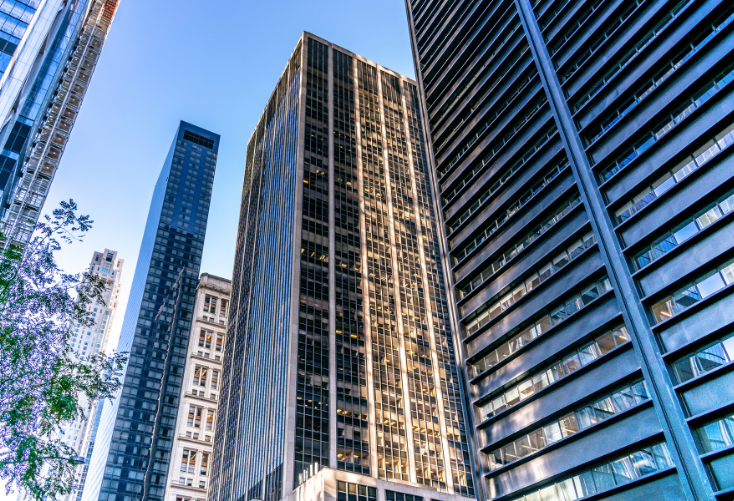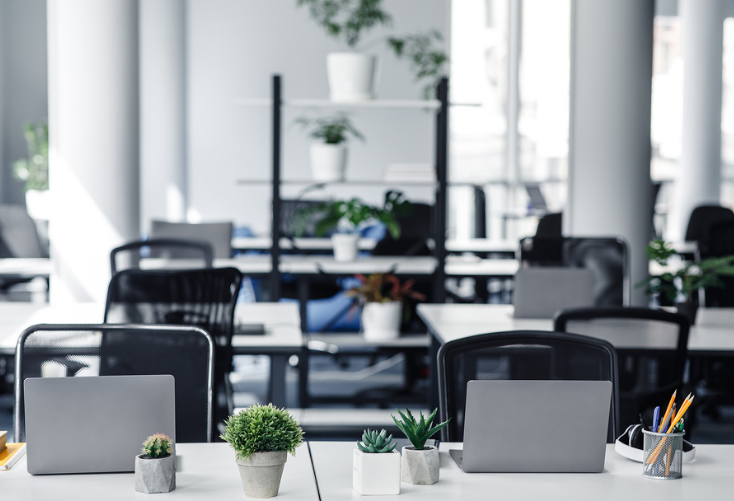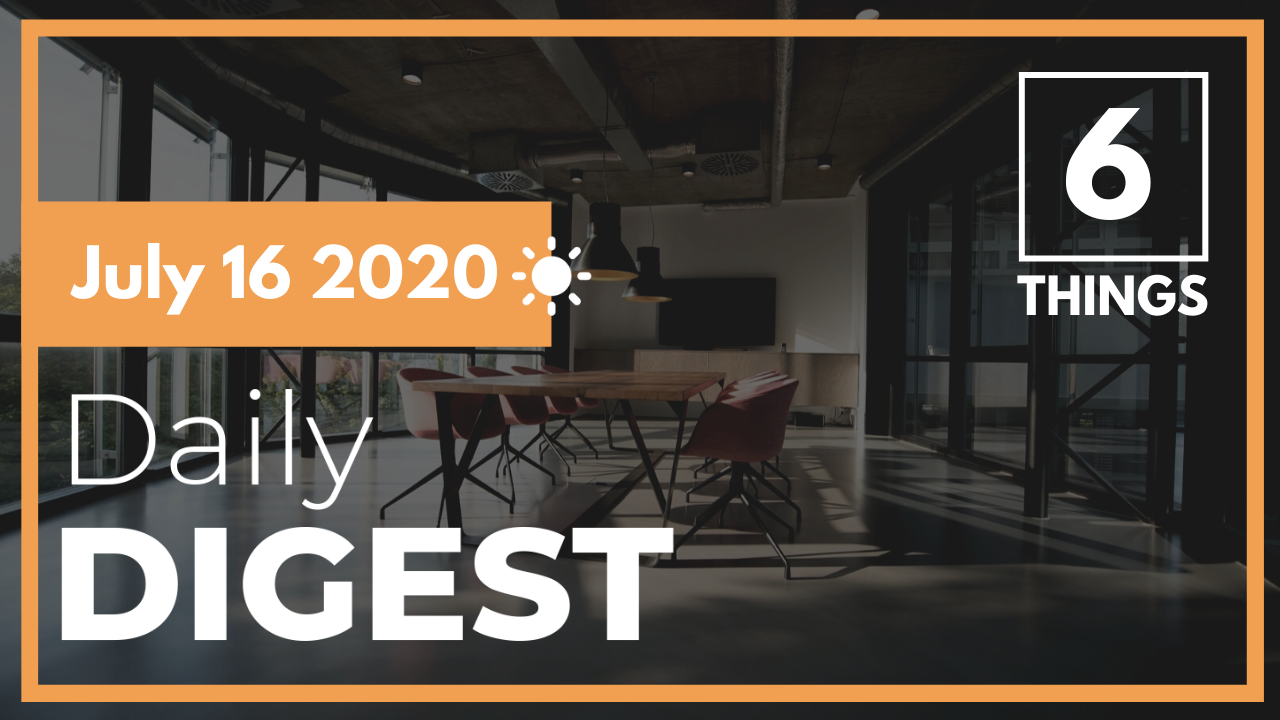Hand selected flexible workspace news from the most reliable sources to keep you ahead of the pack. We find all the latest news, so you don’t have to. Morning and afternoon updates. Stay in the know.
Here’s what you need to know today:
- WeWork Settles Lawsuit With D.C. Landlord NEW
- How Being “Always On” Can Be Good And Bad NEW
- How Coworking Could Bounce Back NEW
- Manhattan Real Estate Firm Sues Knotel
- Pressures Of Presenteeism Remains High
- How Remote Working Is Changing Workers’ Compensation
WeWork Settles Lawsuit With D.C. Landlord
WeWork has settled its lawsuit against The Meridian Group, where it sought out almost $7 million in tenant improvement costs.
The lawsuit stated that the Bethesda-based landlord promised a construction allowance of up to $9 million for its 66,529 square foot Washington D.C. building to WeWork. However, WeWork stated that Meridian refused to pay the allowance after it submitted claims to be reimbursed.
On October 30, both parties jointly filed a stipulation of dismissal in D.C Superior Court, but did not disclose any specifics of the settlement.
This settlement calms the waters between Meridian and WeWork, who have an extensive relationship that goes beyond this D.C. location.
The two firms partnered on an acquisition of another D.C. location on New Hampshire Ave. NW for $136.5 million. However, WeWork has seemingly put its portion of the space up for sublease.

How Being “Always On” Can Be Good And Bad
According to a Myers-Briggs study, “always on” culture can be both good and bad, depending on the person’s personality type.
“This suggests that organizations will benefit from exploring how to help individuals find the sweet spot between using technology to increase engagement and flexibility,” said John Hackston, head of thought leadership and study co-author at The Myers-Briggs Company. “And not letting technology take over to the point of causing negative effects.”
While the study was published last December, it is highlighting a huge obstacle that has become prevalent in the pandemic era.
The findings also revealed that those who were able to easily access their work emails outside of work were more engaged, but also experienced more stress.
Additionally, those who were unable to disconnect at the end of the work day saw their personal lives suffer.
However, people who strictly focused on separating their home and work lives see “always on” culture to be more stressful than those who are more flexible in their day-to-day schedules.
So how can companies adapt to these various personalities to ensure that all employees are supported? The key is simply flexibility.
According to another report from Slack, 72% of 9,000 knowledge workers stated they want a hybrid work arrangement, which is a mix of both remote and in-office working.
This allows employees to keep the benefits of remote working, such as telecommuting and a better work-life balance, as well as the perks of office arrangements, like socialization and collaboration.

How Coworking Could Bounce Back
The most recent Coworking Market Report has revealed that the coworking industry could be preparing to make a comeback.
Although coworking spaces are expected to see a dip from $9.27 billion in 2019 to $8.24 billion in 2020 and an overall drop in membership, operators are starting to see growth in demand.
For example, WeWork reported that it has sold 13 times more of its All Access passes in September than in August.
This uptick in demand is likely due to the remote working fatigue many people are experiencing as the threat of the pandemic continues on.
Working from home in the long-term has been found to negatively impact employees, often causing isolation and loneliness. Even more, workers have expressed feeling more stressed due to fears that they could see a pay cut or lose their jobs due to working from home.
All of this considered, the mental health of many remote workers has become rocky and the risk for burning out has grown.
And that is where coworking spaces come in. Operators are finding that professionals are eager to work outside of their homes in a safe, clean workspace.
“We totally see a ‘V’-shaped recovery for the co-working sector. Even today, we’re doing extremely good in terms of our sales numbers,” said Amit Ramani, CEO of coworking firm Awfis.

Manhattan Real Estate Firm Sues Knotel
Knotel is being sued by Manhattan real estate private equity firm Northwind Group over missed rent for its location on 40 Wooster Street.
The firm withdrew the flexible office company’s $206,250 deposit last May, but states that Knotel still owes $485,810 as of October.
The SoHo landlord claims that Knotel owes nearly $900,000 in unpaid rent, which includes six months of free rent that was part of its original lease agreement. Northwind said that if a tenant fails to uphold their end of a lease agreement, they lose the benefit of free rent.
“Knotel is always evaluating and adjusting our portfolio to best meet the needs of our customers, through Covid-19 and beyond, and we have reached positive resolutions with many owners,” said Mousa Ackallm, a Knotel spokesperson. “We take our landlord relationships very seriously, and will continue to actively engage with them to achieve good outcomes during these challenging times.”

Pressures Of Presenteeism Remains High
According to a new global study from the ADP Research Institute, workers are feeling the pressure of presenteeism despite the rise of flexible working arrangements.
The ADP Workforce View 2020 Volume Two post-COVID-19 report found that 54% of employees have felt pressured by their employer to physically come into work during the pandemic.
Of the 11,000 respondents, the pressure was felt strongest among 18-to-24-year-olds compared to those over the age of 55.
“The idea that employers are pushing for presenteeism – even if that means going against official warnings – is worryingly widespread, and for some workers it’s a persistent issue,” said Jeff Phipps, Managing Director at ADP UK. “Presenteeism is far from a new concern and the risks have long been clear, but in the midst of a global pandemic, insistent pressure to be in the office can put employees’ lives in danger. Plus, if workers are feeling pressured to turn up for work in person, whether that pressure is real or imagined, it can have a negative impact on their wellbeing and morale.”
These findings coincide with the increase of companies becoming more open to flexible working arrangements, with 44% of respondents saying their employers now have an official flex work policy. However, only 18% said they felt empowered to take advantage of this work option.

How Remote Working Is Changing Workers’ Compensation
According to a new Global Workplace Analytics survey, 82% of workers stated they want to continue working from home after the pandemic has ended.
Knowing this, employers are evaluating how remote working could impact worker’s compensation insurance.
“For purposes of Code 8871, a residence office is a clerical work area located within the home of the clerical employee. Additional requirements are that the residence office must be separate and distinct from the location of the employer,” the National Council on Compensation Insurance’s Classification Codes and Statistical Codes Manual states. “In the event an employer operates a business from a residence and the employer has clerical staff at the employer’s business location residence, these clerical employees are classified to Code 8810.”
However, each state has its own rules of workers’ compensation when employees are working remotely. For instance, 8871 does not apply in California, Massachusetts, Montana, New Jersey, Oregon and Texas.
That is why employers need to ensure that employees are classified correctly when working from home due to the risks they could face in these environments. For example, if a worker falls while taking a work-related call, it could be covered under workers’ compensation.

















